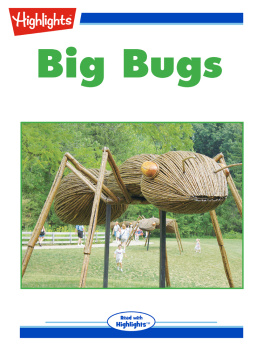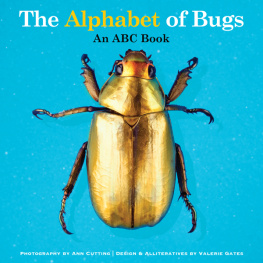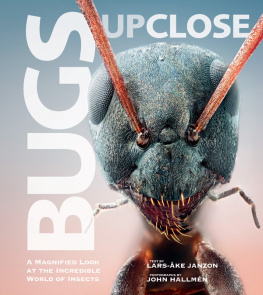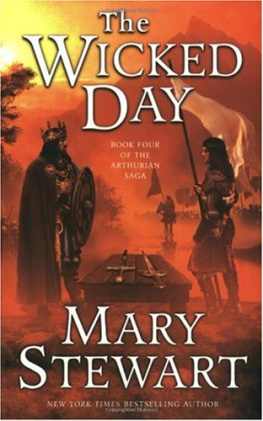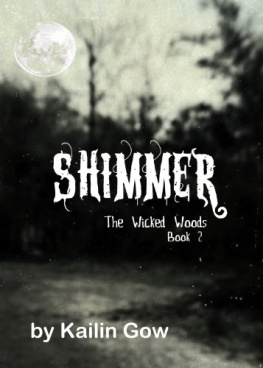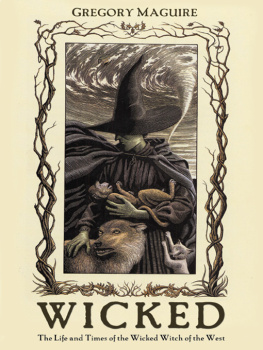Amy Stewart - Wicked Bugs
Here you can read online Amy Stewart - Wicked Bugs full text of the book (entire story) in english for free. Download pdf and epub, get meaning, cover and reviews about this ebook. year: 2011, publisher: Algonquin Books of Chapel Hill, genre: Detective and thriller. Description of the work, (preface) as well as reviews are available. Best literature library LitArk.com created for fans of good reading and offers a wide selection of genres:
Romance novel
Science fiction
Adventure
Detective
Science
History
Home and family
Prose
Art
Politics
Computer
Non-fiction
Religion
Business
Children
Humor
Choose a favorite category and find really read worthwhile books. Enjoy immersion in the world of imagination, feel the emotions of the characters or learn something new for yourself, make an fascinating discovery.

- Book:Wicked Bugs
- Author:
- Publisher:Algonquin Books of Chapel Hill
- Genre:
- Year:2011
- Rating:5 / 5
- Favourites:Add to favourites
- Your mark:
- 100
- 1
- 2
- 3
- 4
- 5
Wicked Bugs: summary, description and annotation
We offer to read an annotation, description, summary or preface (depends on what the author of the book "Wicked Bugs" wrote himself). If you haven't found the necessary information about the book — write in the comments, we will try to find it.
Wicked Bugs — read online for free the complete book (whole text) full work
Below is the text of the book, divided by pages. System saving the place of the last page read, allows you to conveniently read the book "Wicked Bugs" online for free, without having to search again every time where you left off. Put a bookmark, and you can go to the page where you finished reading at any time.
Font size:
Interval:
Bookmark:
WICKED BUGS
ALSO BY AMY STEWART
From the Ground Up: The Story of a First Garden
The Earth Moved: On the Remarkable Achievements of Earthworms
Flower Confidential: The Good, the Bad, and the Beautiful in the Business of Flowers
Wicked Plants: The Weed That Killed Lincolns Mother & Other Botanical Atrocities

THE LOUSE THAT CONQUERED NAPOLEONS ARMY & OTHER DIABOLICAL INSECTS
Amy Stewart
ETCHINGS AND DRAWINGS BY
Briony Morrow-Cribbs

Published by
ALGONQUIN BOOKS OF CHAPEL HILL
Post Office Box 2225
Chapel Hill, North Carolina 27515-2225
a division of
WORKMAN PUBLISHING
225 Varick Street
New York, New York 10014
2011 by Amy Stewart. All rights reserved.
Printed in the United States of America.
Published simultaneously in Canada by Thomas Allen & Son Limited.
Design by Anne Winslow, with thanks to Jean-Marc Troadec.
Reproduction of the Schmidt Pain Index (pages 137138) reprinted by permission of Justin O. Schmidt.
Library of Congress Cataloging-in-Publication Data
Stewart, Amy.
Wicked bugs : the louse that conquered Napoleons army & other
diabolical insects / Amy Stewart ; etchings and drawings by
Briony Morrow-Cribbs.1st ed
p. cm.
Includes bibliographical references and index.
ISBN 978-1-56512-960-3
1. Insect pests. 2. Arachnida. I. Morrow-Cribbs, Briony. II. Title.
SB931.S83 2011
632.7dc22 2011003629
10 9 8 7 6 5 4 3 2 1
First Edition
To PSB

END NOTES
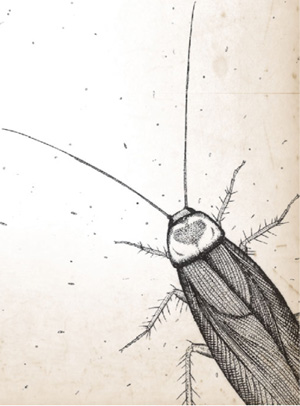
WARNING: We Are Seriously Outnumbered
In 1909, the Chicago Daily Tribune ran an article titled If Bugs Were the Size of Men. It began with this ominous statement: All the powers of destruction that were ever invented by man are puerile and absurd compared with those with which nature has invested insects. The reporter went on to ask what would happen if some mighty magicians wand should be waved over the world tomorrow and mankind be reduced to the size of insects, while these tiny creatures should reach the size of men.
Chicagoans must have read with alarm of the calamities that would befall them if they were to trade places with bugs: the giant Hercules beetle was not just formidable, but immoral, with a taste for drinking and brawling; bark beetles would mow down massive fortresses; armies would be helpless against the artillery of the bombardier beetle; and spiders would destroy elephants... a mans only possible salvation would be that he was too insignificant to attack. Even lions would cower in fear against these new winged and multilegged enemies.
The reporters intent was, undoubtedly, to make the point that insects are powerful in their own way and to suggest that only their diminutive size keeps them from conquering the world.
If only that were true. In fact, insects have changed the course of history. They have halted soldiers in their tracks. They have driven farmers off their land. They have devoured cities and forests, and inflicted pain, suffering, and death upon hundreds of millions.
This is not to say that they dont do good as well. They pollinate the plants that feed us, and they are themselves food for creatures up and down the food chain. They do the vital work of decomposition, returning everything from fallen leaves to fallen heroes back to the earth. Any number of insects, from the blow fly to the blister beetle, have proven useful in medicine. And they prey on one another, keeping pests in check. We could not live without them. In fact, indiscriminate pesticide use and destruction of insect habitats is far more harmful than simply learning to live alongside them and to appreciate their finer qualities.
BUT THIS IS NOT a book celebrating their virtues. As with Wicked Plants, I have devoted myself exclusively to the dark side of the relationship between nature and humans. Some might say that people already harbor enough hatred of insects and need no further encouragement. And those of us who are staunchly on the side of bugs, sweeping them gently out of the house with a word of kindness and refusing to allow chemical sprays into our gardens for fear of disturbing their dinner, might be disinclined to explore their criminal history.
However, our affections can be as misleading as our phobias. The common garden spider on your windowsill deserves applause for her good deeds, but the bloodsucking assassin bug you encounter on a South American vacation should be given a wide berth. Learning to make such distinctions doesnt require an entomology degree; a little common sense and an open-minded curiosity is all you need. I hope that Wicked Bugs inspires bothand delivers a few spine-tingling thrills along the way.
I am not a scientist or doctor. Im a writer who is fascinated by the natural world. Within each chapter, I set out to tell a deliciously frightening story and to offer just enough information about the habits and lifestyles of each creature to make them easier to recognize. This is by no means a comprehensive field guide or a medical reference book; please do not rely upon it to definitively identify a bug or diagnose an ailment. For that, there is a list of recommended reading and resources at the end of the book.
Of the thousands of species I could have included, I chose those that intrigued me the most. I use the word wicked rather broadly, encompassing the worlds most painful insects, such as the bullet ant, which gets its name from the fact that its bite feels like a gunshot wound; its most destructive insects, like the Formosan subterranean termite quietly chewing away at the seams of the floodwalls around New Orleans; and disease vectors like the Oriental rat flea that brought the Black Death to Europe. Insects that destroy crops, drive people from their homes, or simply drive people mad all found a place within these pages. Some of the stories are grotesque, and some are tragic, but in every case, I was left awestruck by the power and intricacy of these tiny creatures.
Entomologists will be quick to protest that the term bug is misleading, and they are quite right. Most of us use the word to describe any number of tiny slithering and crawling creatures; we deploy it with even less precision when we use it to refer to an illness like the stomach flu, a flaw in a computer program, or a listening device hidden in a lampshade. None of these are, from a scientific perspective, accurate. Strictly speaking, an insect is a creature with six legs, a three-segmented body, and usually two sets of wings. A true bug is a subset of insect in the order Hemiptera that has piercing and sucking mouthparts. An aphid, therefore, is a type of insect that we can properly call a bug; an ant is not. Spiders, worms, centipedes, slugs, and scorpions are not insects at all but arachnids and other classes of creatures that are only distantly related to insects. I could not resist including a few of them in this book and beg the forgiveness of scientists for employing the amateurs definition of the term
Next pageFont size:
Interval:
Bookmark:
Similar books «Wicked Bugs»
Look at similar books to Wicked Bugs. We have selected literature similar in name and meaning in the hope of providing readers with more options to find new, interesting, not yet read works.
Discussion, reviews of the book Wicked Bugs and just readers' own opinions. Leave your comments, write what you think about the work, its meaning or the main characters. Specify what exactly you liked and what you didn't like, and why you think so.



